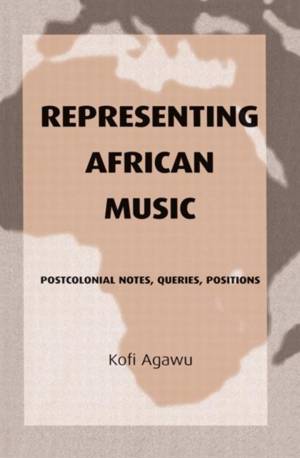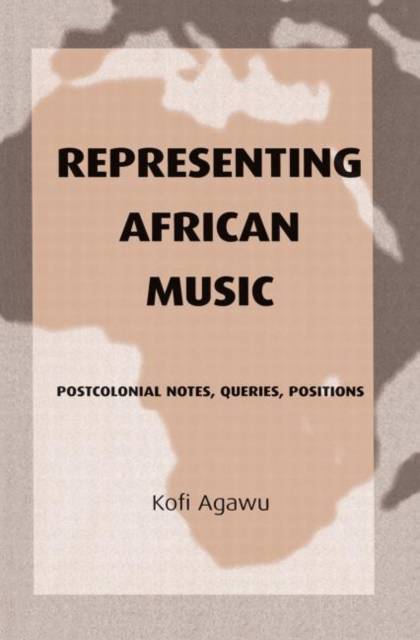
- Afhalen na 1 uur in een winkel met voorraad
- Gratis thuislevering in België vanaf € 30
- Ruim aanbod met 7 miljoen producten
- Afhalen na 1 uur in een winkel met voorraad
- Gratis thuislevering in België vanaf € 30
- Ruim aanbod met 7 miljoen producten
Zoeken
€ 274,95
+ 549 punten
Uitvoering
Omschrijving
The aim of this book is to stimulate debate by offering a critique of discourse about African music. Who writes about African music, how, and why? What assumptions and prejudices influence the presentation of ethnographic data? Even the term "African music" suggests there is an agreed-upon meaning, but African music signifies differently to different people. This book also poses the question then, "What is African music?" Agawu offers a new and provocative look at the history of African music scholarship that will resonate with students of ethnomusicology and post-colonial studies. He offers an alternative "Afro-centric" means of understanding African music, and in doing so, illuminates a different mode of creativity beyond the usual provenance of Western criticism. This book will undoubtedly inspire heated debate--and new thinking--among musicologists, cultural theorists, and post-colonial thinkers. Also includes 15 musical examples.
Specificaties
Betrokkenen
- Auteur(s):
- Uitgeverij:
Inhoud
- Aantal bladzijden:
- 288
- Taal:
- Engels
Eigenschappen
- Productcode (EAN):
- 9780415943895
- Verschijningsdatum:
- 16/05/2003
- Uitvoering:
- Hardcover
- Formaat:
- Genaaid
- Afmetingen:
- 166 mm x 235 mm
- Gewicht:
- 639 g

Alleen bij Standaard Boekhandel
+ 549 punten op je klantenkaart van Standaard Boekhandel
Beoordelingen
We publiceren alleen reviews die voldoen aan de voorwaarden voor reviews. Bekijk onze voorwaarden voor reviews.











